The HCoC and Strategic Risk Reduction
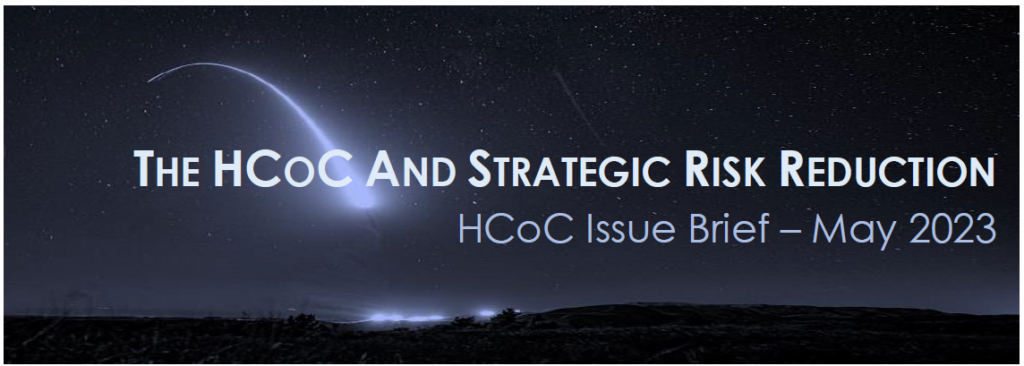
As a multilateral instrument, the HCoC holds a particular place in a global architecture of measures that attempts to reduce the destabilising nature of ballistic missiles. By promoting transparency about policies and launches, it aims to limit the risk of misunderstanding, misinterpretation, and worst-case assessments.
Hypersonic missiles: Evolution or revolution for missile non-proliferation and arms control instruments?
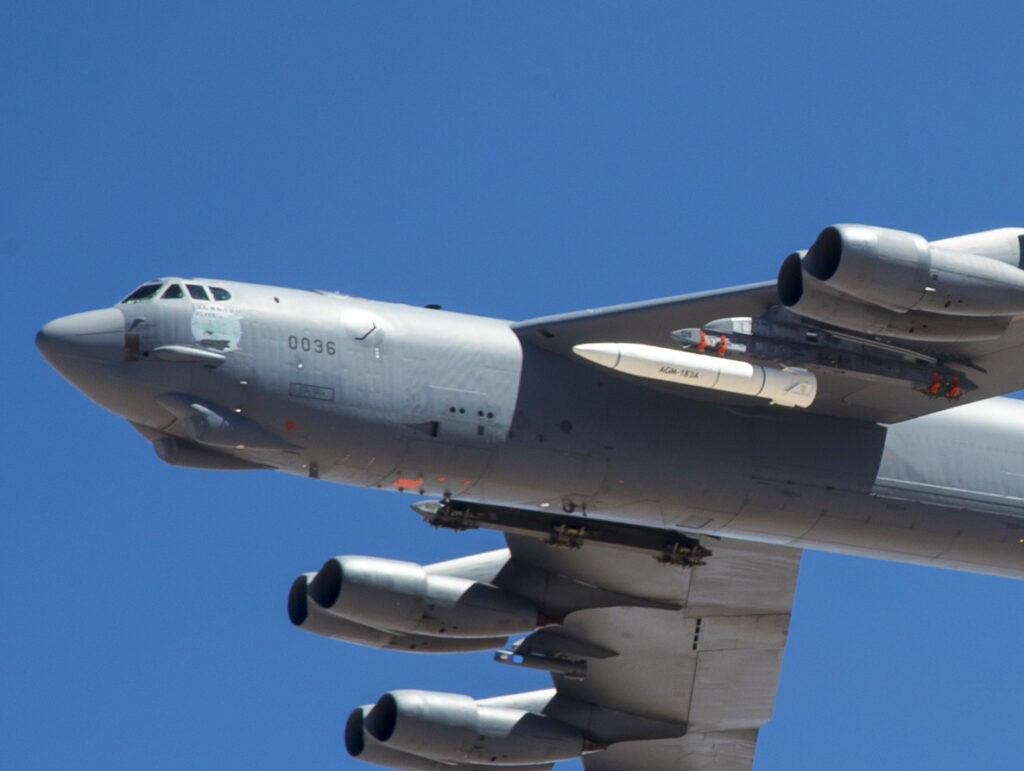
After listing major programmes and key drivers beyond the acquisition of these technologies, this paper considers their development under the prism of arms control, and analyses whether current mechanisms (non-proliferation arrangements, bilateral arms control treaties and confidence-building measures) dealing with missiles are adapted to these weapons.
Fifth EU Council Decision in support of the HCoC
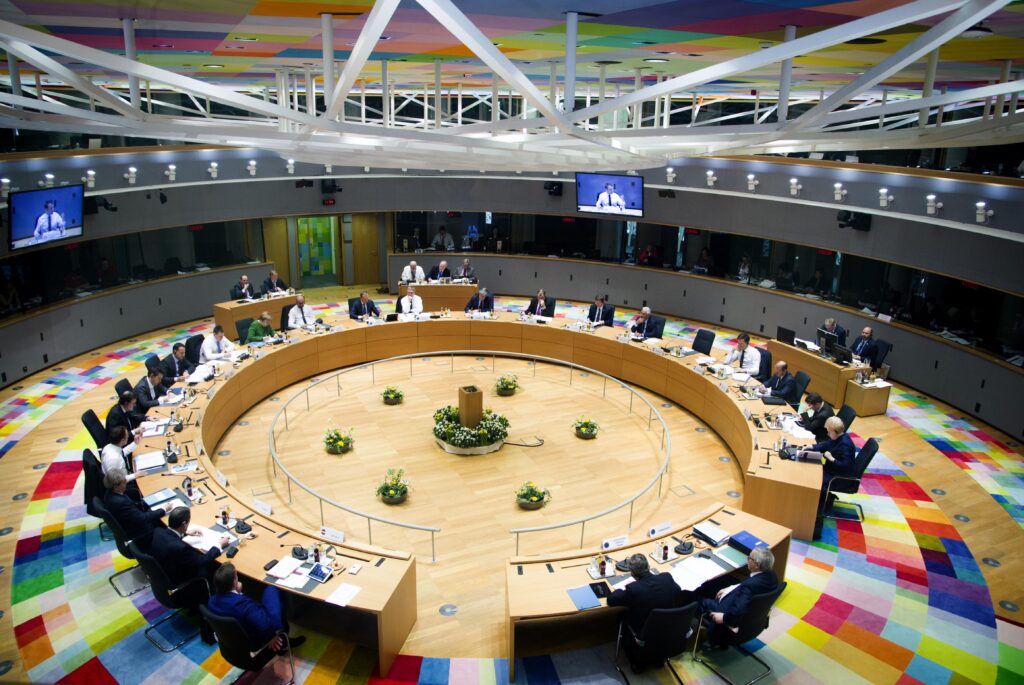
On 17 January 2023, the Council of the European Union adopted Decision (CFSP) 2023/124 in support of the Hague Code of Conduct and ballistic missile non-proliferation in the framework of the implementation of the EU Strategy against Proliferation of Weapons of Mass Destruction.
Report Launch Event – North Korea’s Short Range Systems
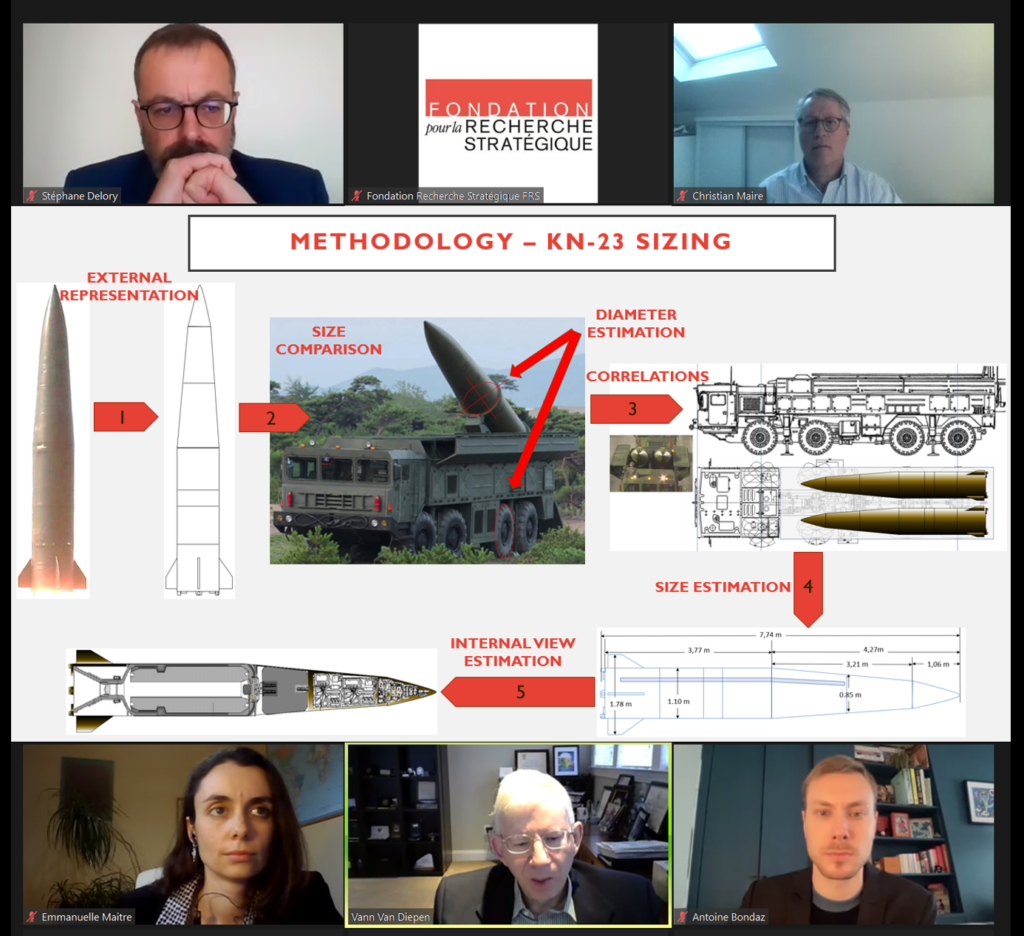
On 17 January 2023, FRS organised a webinar to discuss its recently published report on North Korea’s short range ballistic missiles. The authors of the study presented their main findings and Vann van Diepen assessed the contribution of this report to our understanding of North Korea’s military strategy.
North Korean Short Range Systems: Military consequences of the development of the KN-23, KN-24 and KN-25
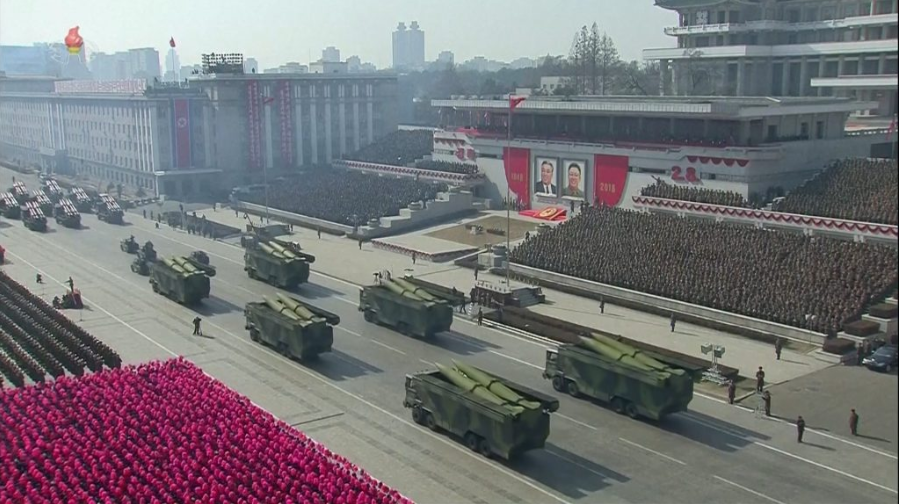
This study focuses on the new systems introduced, and assesses their potential impact as conventional weapons and as non-conventional weapons. Through an analysis of the possible capacities of these systems, this study examines their consequences on North Korean strategy. It concludes by exploring what this change of strategy may lead to, in military terms, and in political terms, on the Korean peninsula.
Visit of Europe’s spaceport in Kourou
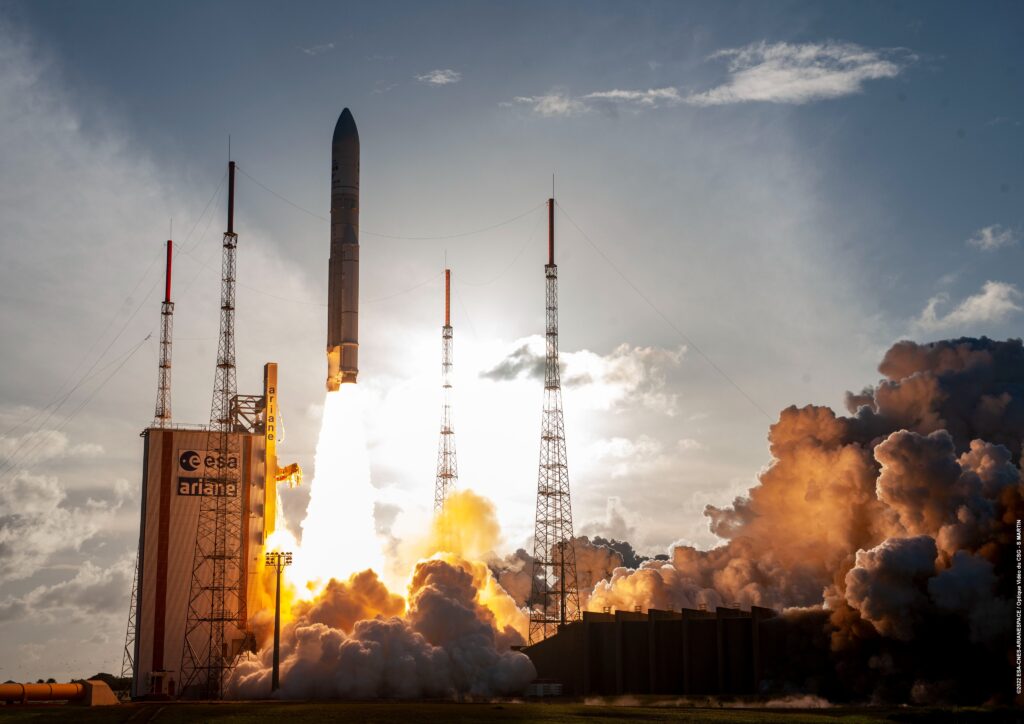
On 13-16 December, as part of the European Union’s decision to support HCoC, the FRS organised a visit to Europe’s spaceport in Kourou (French Guiana), in close cooperation with the French National Centre for Space Studies (CNES) and the French authorities in French Guiana.
New UN General Assembly Resolution in support of the HCoC
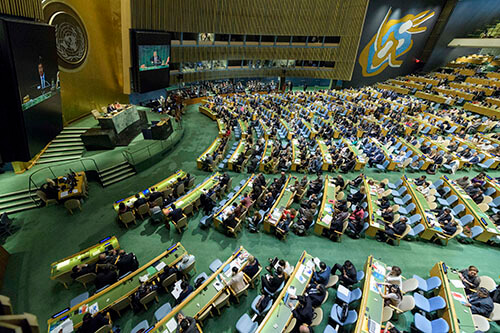
On 7 December 2022, the UNGA adopted A/RES/77/58 by a recorded vote of 167 in favour to 2 against with 9 abstentions.
20th Anniversary of the HCoC

On 25 November 2022, the HCoC marked its 20th anniversary. It was indeed adopted in the Hague by 93 states on the same date in 2002. After two decades of existence, the Code is all the more important to international security.
The HCoC at Twenty
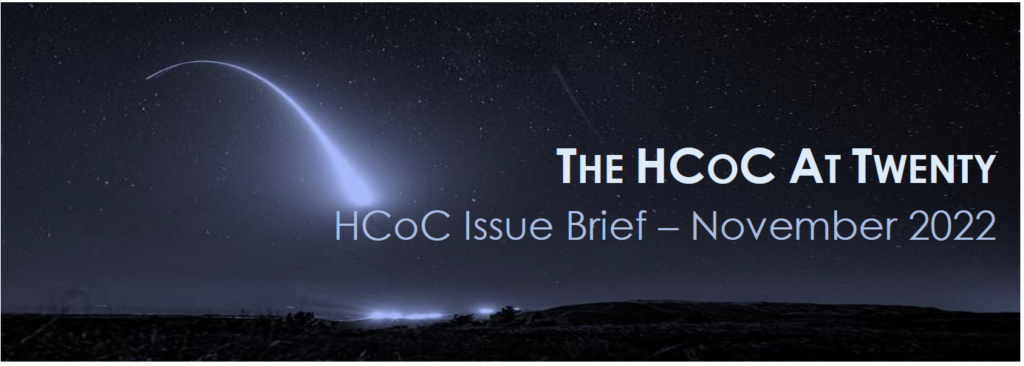
Since its inception and through the collective outreach efforts of its Chairs, the Executive Secretariat, the EU and the United Nations, the Hague Code of Conduct has received growing support. It has improved its efficiency and implementation through a series of initiatives which have made it more easily accessible.
Promoting the HCoC at the UNIDIR Space Security Conference
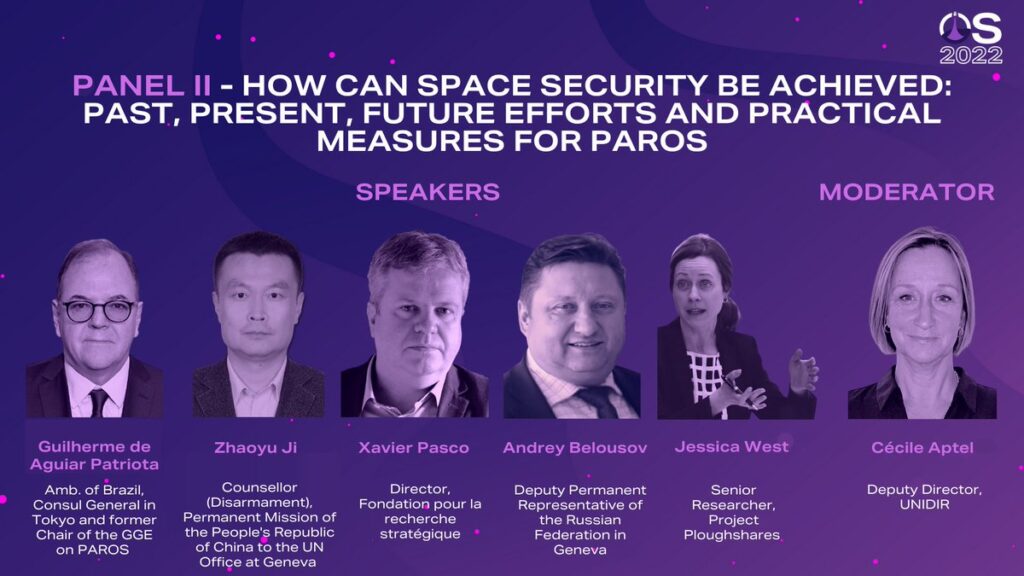
Dr Xavier Pasco explained how the Hague Code of Conduct participates to space security during the UNIDIR Space Security Conference on 1st November 2022, in Geneva.
Marking 20 Years of the Hague Code of Conduct Side-event – UNGA First Committee

This event is organised by the European Union, with the support of FRS, to mark the 20th Anniversary of the Hague Code of Conduct against Ballistic Missile Proliferation (HCoC) in the margins of the UNGA First Committee.
The 20th anniversary of HCoC provides the opportunity to make a further step towards the universalization of the Code through a side-event held in New York in the margins of the First Committee of the UNGA. This side-event will also promote the adoption of a new UNGA resolution in support of the Code.
Origins and Development of the Hague Code of Conduct
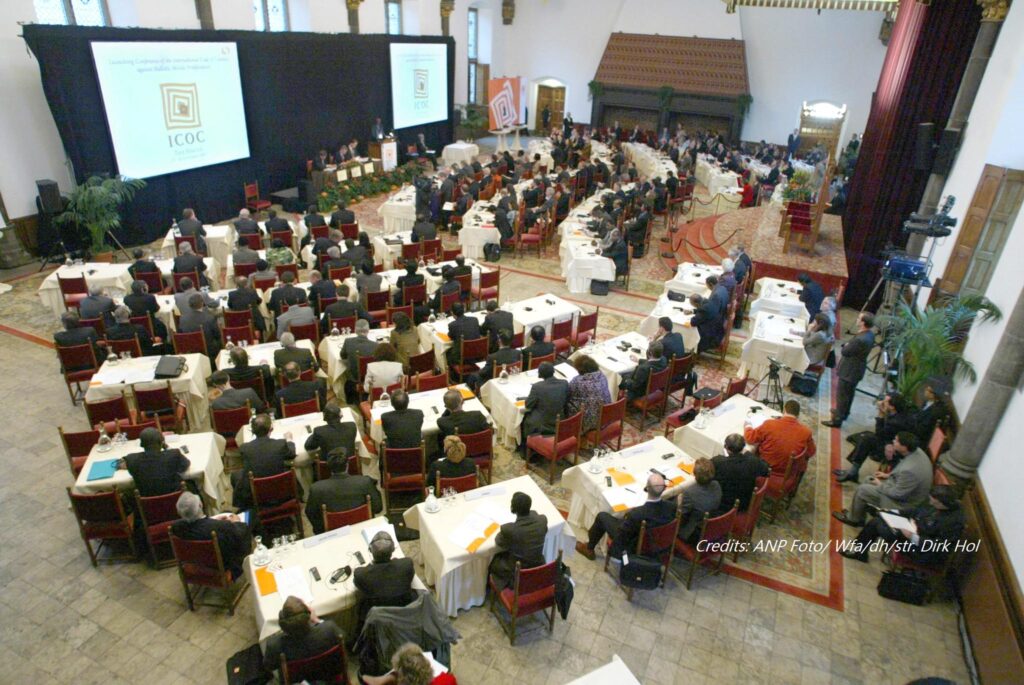
This paper recalls the state of ballistic missile proliferation at the time of the adoption of the Code, before delving into the genesis of the Code and especially the various reports and meetings that promoted the adoption of a supply-side multilateral instrument. It describes the conferences and diplomatic efforts that led to the Code in 2002. It also explains why the Code ended up the way it is today with modest ambitions but concrete outcomes.
The HCoC and Northeast Asian States
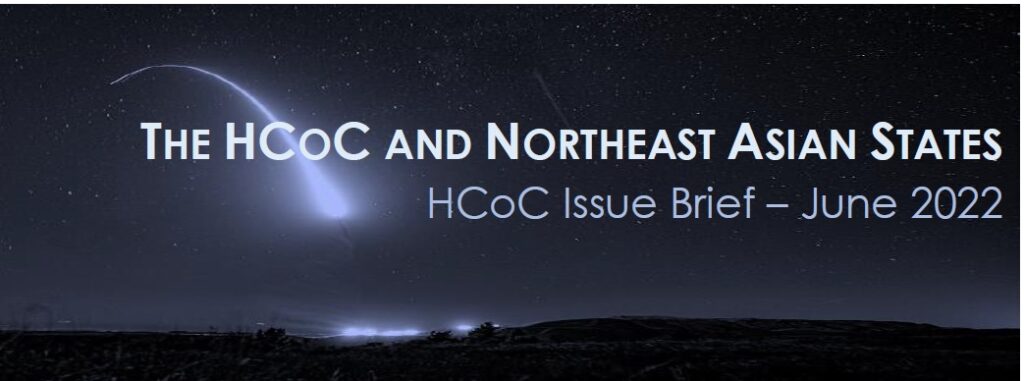
A majority of Northeast Asian states currently possess or seek to acquire ballistic missiles, producing a missile race and an increase in the number of tests as states are developing their capabilities further. Proliferation risks also remain high, and it is noteworthy that only South Korea and Japan have joined the MTCR.
Nigeria takes over HCoC chairmanship for 2022-2023

On May 30-31, Argentina officially handed over the Chairmanship of The Hague Code of Conduct to Nigeria during the 21st Annual Regular Meeting of subscribing states in Vienna.
Marking the 20th Anniversary of the HCoC

On 1st June 2022, the FRS, with the support of the EU as well as the government of France and of the Netherlands, organised an event marking the 20th Anniversary of the Hague Code of Conduct.
Ballistic missile proliferation in the Middle East: What role for CBMs such as the HCoC?

On 17 May 2022, FRS experts met with a delegation of researchers and officials from the United Arab Emirates in Dubai (UAE). The meeting aimed at discussing about trends in missile proliferation in the region, the benefits of joining the Code for states of the region, the challenges facing the Code, as well as to exchange perspectives on dual-use technologies control.
The Hague Code of Conduct and Space
This paper considers the dual approach of the Code by analysing the similarities between launchers and ballistic missiles in light of new technical developments, and assessing the risk of missile technology proliferation. It also assesses the new trends and developments in the space sector that may have an impact on the ability of the HCoC to remain relevant in its efforts to curb the proliferation of ballistic launchers.
The Hague Code of Conduct in the Middle East
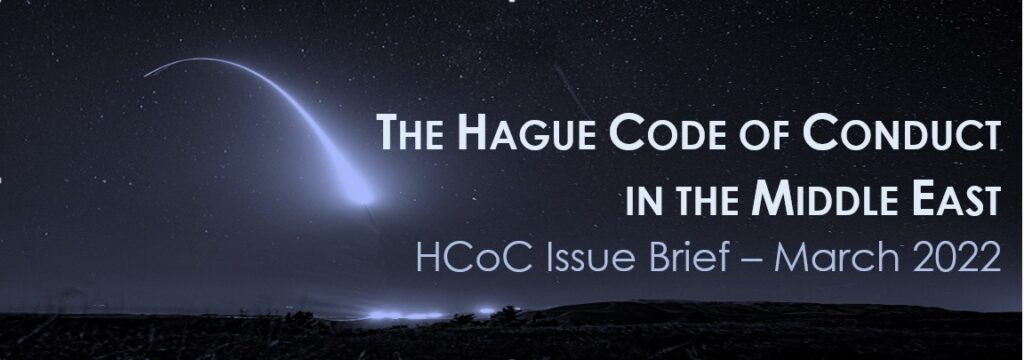
The HCoC holds special significance in the Middle East as the region is fraught with the development of ballistic arsenals, the use of missiles on the battlefield and the proliferation of such systems towards both states and non-state actors. Moreover, several ballistic missile programmes have been closely associated with WMD acquisition.
Research Paper Launch Event – Harnessing transparency potential for missile non-proliferation
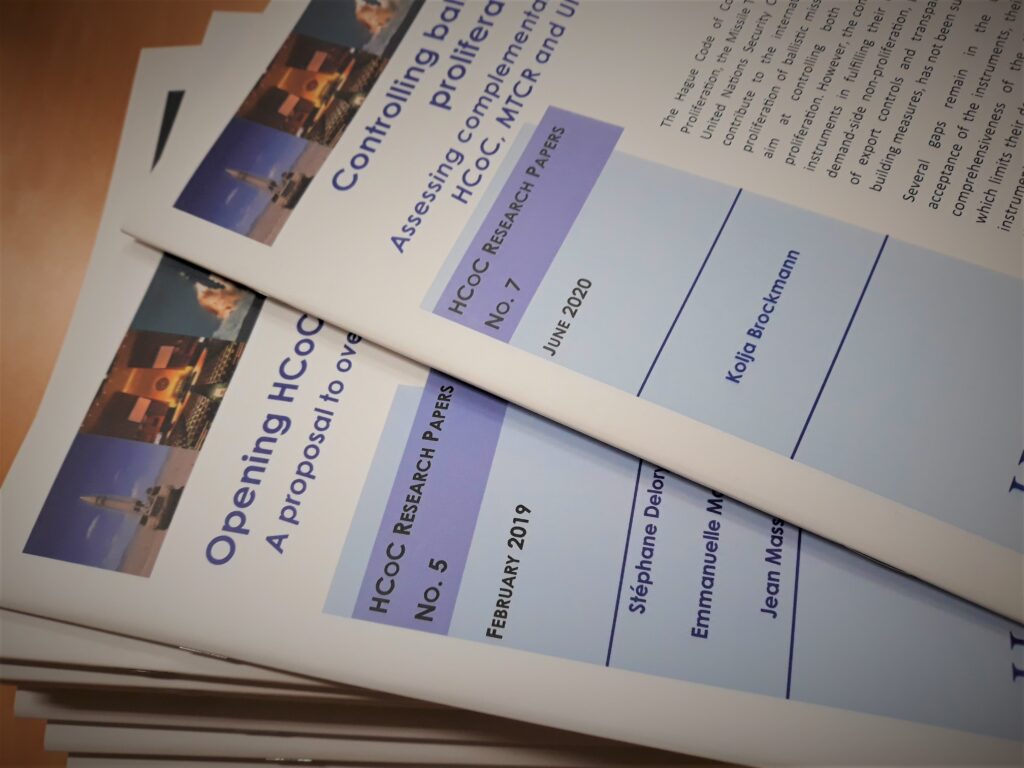
On 17 February 2022, Katarzyna Kubiak discussed her recently published paper on how open source intelligence can be mobilised to track missile development, and therefore contribute to the goal pursued by the Hague Code of Conduct.
Harnessing Transparency Potential for Missile Non-Proliferation
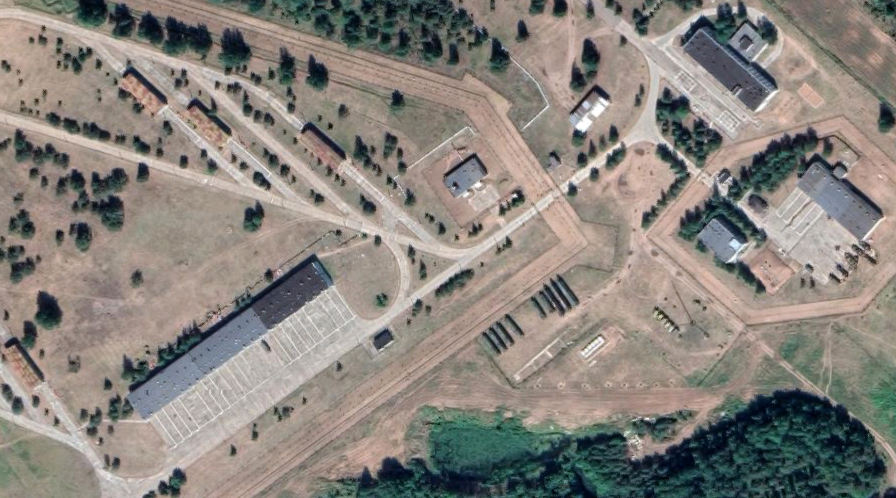
Information is key for non-proliferation efforts. But the times when information was the exclusive purview of governments are over. Affordable, commercial and open-source monitoring capabilities empower states and societies alike, while challenging the ability of governments to preserve secrecy. Technological democratisation means that information is practically becoming a public good. And it allows for unprecedented transparency.

